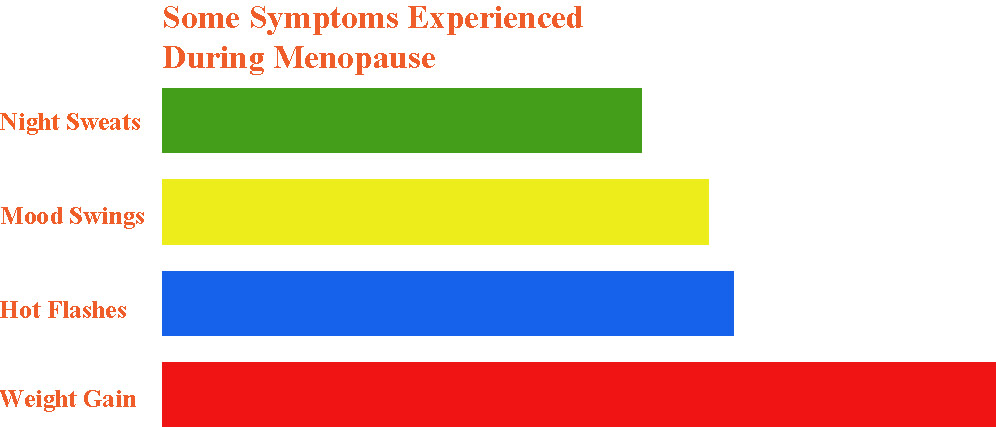 Once into menopause, it can be more difficult to lose or maintain weight regardless of how much you exercise or control your food intake. Not only do many women gain weight, but the weight is distributed differently. The pounds will pack onto the abdomen rather than around the hips, butt, and thighs which leads to that apple shape putting women at an increased risk for heart disease and hypertension. The weight gain and redistribution of weight is due to fluctuating levels of the hormones estrogen, progesterone, androgen, and testosterone.
Once into menopause, it can be more difficult to lose or maintain weight regardless of how much you exercise or control your food intake. Not only do many women gain weight, but the weight is distributed differently. The pounds will pack onto the abdomen rather than around the hips, butt, and thighs which leads to that apple shape putting women at an increased risk for heart disease and hypertension. The weight gain and redistribution of weight is due to fluctuating levels of the hormones estrogen, progesterone, androgen, and testosterone.
As estrogen levels decline, the body will look to fat cells that can produce estrogen — your body will convert calories to fat in order to increase the levels of estrogen. Progesterone levels also decline which can cause bloating and water retention. Androgen levels increase causing the weight to accumulate around the midsection. Testosterone levels also decline which results in the loss of muscle mass which in turn means a slower metabolism– muscle cells burn calories much better than fat cells do. In addition, insulin resistance can occur which causes calories to be converted and stored as fat especially in women that eat a low fat, high carbohydrate diet. Stress can also cause weight gain because the stress hormones signal the body to go into storage mode which means that all of the calories go into storage.
This all sounds bleak, doesn’t it? Fortunately, there are some things we can do to control weight gain. It is important to stay away from highly refined processed foods and incorporate more vegetables and fruits in the diet. Fad diets can cause more weight gain in the long run due to them slowing down an already slowed down metabolism. A well balanced diet is highly recommended. It is a good idea to avoid alcohol, caffeine, and nicotine because overindulging can cause water retention. Of course, aerobic exercise like cycling, dancing, water aerobics, brisk walking or jogging will increase your metabolism and help burn fat. Weight bearing exercise like jogging, walking, squats, overhead shoulder presses, etc. will increase muscle mass and build and maintain bone mass.
